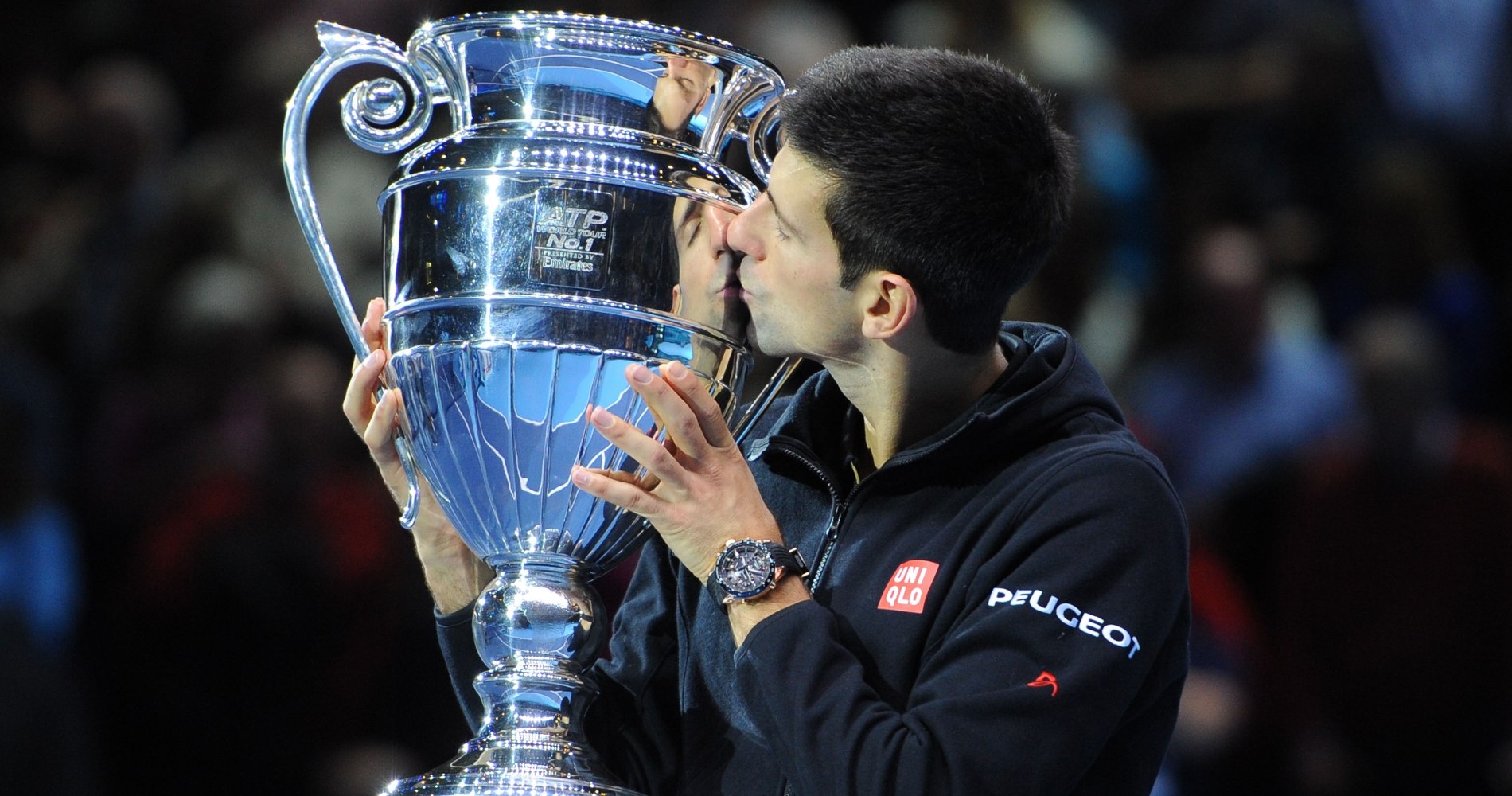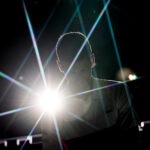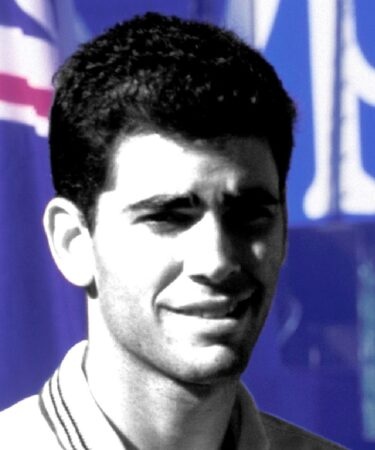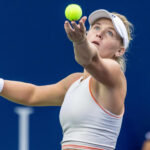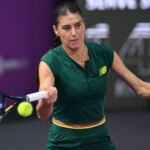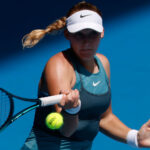October 27, 1996: The day Boris Becker beat Pete Sampras in an epic Stuttgart final
Every day, Tennis Majors takes you back to the most iconic moments in tennis history. On this day in 1996, Boris Becker won his final ATP Masters 1000 title after a five-set win over his American rival
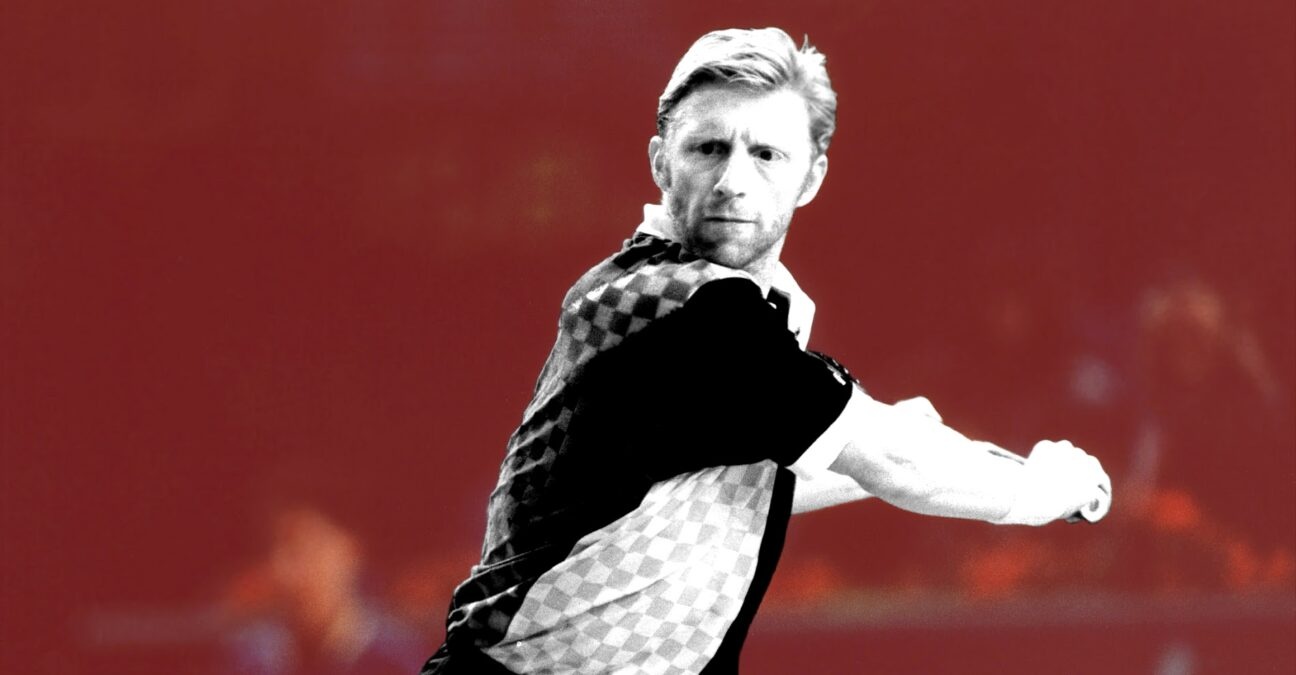 Boris Becker OTD_ On This Day_Stuttgart_1996
Image Credit -© Panoramic / Tennis Majors
Boris Becker OTD_ On This Day_Stuttgart_1996
Image Credit -© Panoramic / Tennis Majors
What happened exactly on that day?
On this day, October 27, 1996, a few weeks before their legendary match at the ATP Masters Cup, Boris Becker defeated Pete Sampras in the final of the ATP Stuttgart Masters 1000 (3-6, 6-3, 3-6, 6-3, 6-4). The German, who had triumphed at the start of the year at the Australian Open, secured his spot in the season-ending finale by clinching the title in Stuttgart. To claim his 48th title, Becker ended Sampras’ streak of eight consecutive finals won since October 1995.
The players: Boris Becker and Pete Sampras
- Boris Becker: The German who went on to become the heartthrob of Wimbledon
Boris Becker was born in Leimen, Germany, in 1967. In 1985, he became the youngest-ever Wimbledon champion at the age of 17, beating Kevin Curren in the final (6-3, 6-7 (4), 7-6 (3), 6-4). He would go on to claim three titles at the All England Club. His powerful serve, which he often followed to the net, earned him the nickname “Boom Boom”.
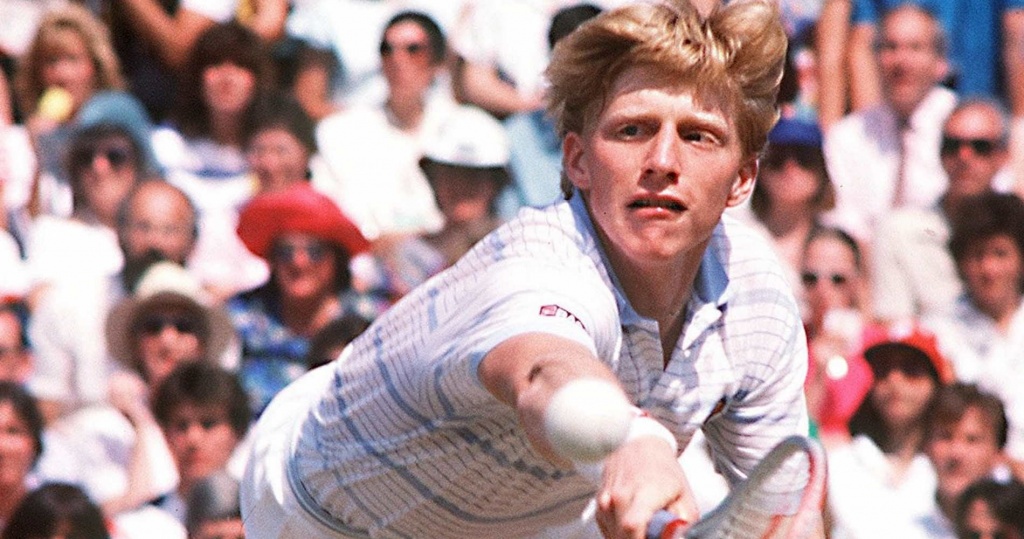
The German was famous for his spectacular diving volleys, as well as for his dramatic play and emotional outbursts. Becker’s peak years were undoubtedly from 1989 to 1991. During that period, he claimed three Grand Slam titles and eventually reached the world No 1 spot on January 28, 1991, after beating Ivan Lendl (1-6, 6-4, 6-4, 6-4) to collect his first Australian Open crown.
Becker then struggled in the following years, and in 1993, he even exited the Top 10 for the first time in eight seasons. In 1994, he reached the semi-finals at Wimbledon and claimed the Stockholm title, beating the three best players in the world to finish the year as world No 3.
In 1995, the German finished runner-up to Pete Sampras at the All England Club (6-7 (5), 6-2, 6-4, 6-2) and reached the semi-final at Flushing Meadows, and in 1996, he claimed his sixth Grand Slam crown in Melbourne, defeating Michael Chang in the final (6-2, 6-4, 2-6, 6-4). After a fourth triumph at the Queen’s Club in June (defeating Stefan Edberg, 6-4, 7-6 (3)), a wrist injury kept him away from the circuit until the indoor season.
- Pete Sampras: The American who dominated men’s tennis in the 1990s
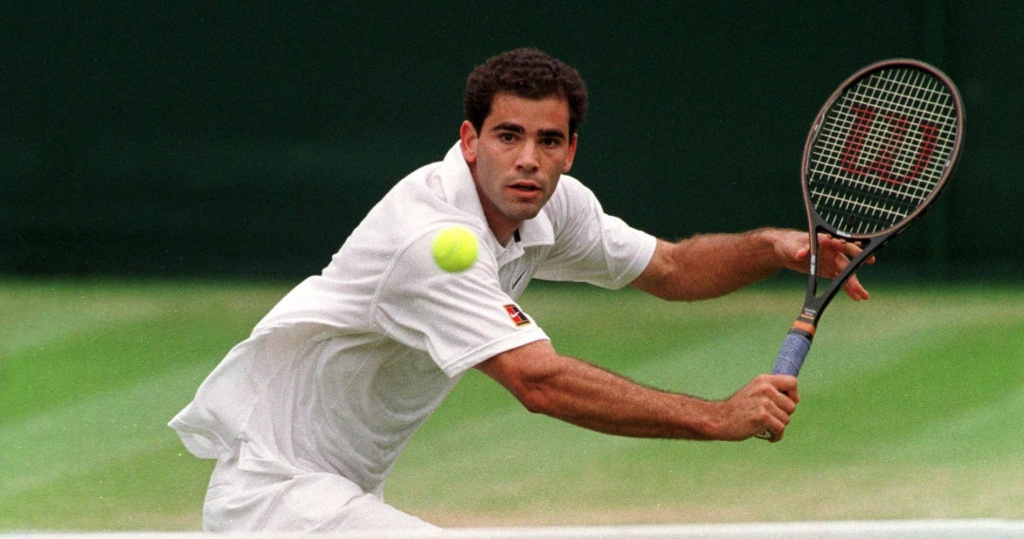
Pete Sampras, born in Washington DC in1971, dominated the game in the 1990s. After a first Grand Slam title at the 1990 US Open (where he crushed his rival Andre Agassi in the final, 6-4, 6-3, 6-2 to became the youngest champion of all time), Sampras would go one to become world No 1 in April 1993.
He then ended the next three seasons (1993-1995) as the world’s top-ranked player. The American’s serve-and-volley game was particularly lethal on the All England Club grass, where he won three consecutive titles between 1993 and 1995, winning 25 matches in a row until Richard Krajicek beat him in the 1996 quarter-finals (7-5, 7-6 (3), 6-4).
Sampras had triumphed four times at the US Open (1990, 1993, 1995, 1996) and once at the Australian Open (1994). On top of that, the American had won the season-ending Masters Cup twice (1991, 1994), and had accumulated a total of 41 titles in his career, including seven Grand Slams and six Masters 1000s.
Sampras could have easily been competing to become the Greatest of all Time, had it not been for his obvious weakness on clay. His best performance at Roland-Garros was a semi-final appearance in 1996 (lost to Yevgeny Kafelnikov 7-6 (4), 6-0, 6-2), and he had only won one tournament on red clay.
The place: Stuttgart, Germany
The Stuttgart Indoor Open was first established in 1979 as a part of the Grand Prix Circuit. The tournament moved off the calendar from 1981 to 1989 and came back in 1990 as a Championship Series event, held in February. In 1996, the Stuttgart Open replaced Essen in the Masters 1000 category, and attracted 29 of the 30 best players in the world.
The facts: Becker hangs on to win in five sets
The final of the 1996 Stuttgart Open was a repeat of the 1995 Wimbledon final, with world No 1 Sampras facing local favourite Becker. While the German had just come back from a wrist injury, the American was at the end of an intense season.
In May, his long-time coach, Tim Gullikson, had passed way after suffering from brain cancer. A few weeks later, Sampras made his best run at Roland-Garros, falling short of the title only in the semi-finals, where he lost to Kafelnikov. Beaten at Wimbledon for the first time in five years by Krajicek, he had salvaged his season by triumphing at the US Open, defeating Michael Chang in the final (6-1, 6-4, 7-6 (3)).
Although 29 of the 30 best players in the world had entered the event, both players had made their way into the finals without dropping a single set. In fact, Becker’s serve was so sharp that week that he had stormed through his first three rounds without facing a single break point. In a five-set serve-and-volley masterclass, the German prevailed over the world No 1 for the first time since the 1994 Masters Cup, after four consecutive losses. The German, who took advantage of the crowd’s support, fired 29 aces, but in the end, he had only won two more points than his opponent (139 to 137).
“Becker is the best indoor player I’ve ever played,” Sampras said paying tribute to his rival. “He’s to Germany what Michael Jordan is to the United States. There’s only one king in Germany and his name is Boris.”
Becker spoke about how he hung on to win the final set after the match: “My muscles started to hurt in the fifth set, but I gritted my teeth and hung on.”
What next? Sampras gains revenge over Becker a few weeks later
Sampras and Becker would face each other again a few weeks later in Hanover, Germany, at the season-ending ATP Masters Cup. In the round-robin phase, the German would prevail again (7-6 (10), 7-6 (4)), but in the final, Sampras would edge him out in one of the greatest matches in tennis history (3-6, 7-6 (5), 7-6 (4), 6-7 (11), 6-4).
The 1996 Stuttgart Open would remain Becker’s last Masters 1000 title. In December, the youngest-ever Wimbledon champion would claim his last title at the Grand Slam Cup, in Munich, defeating Goran Ivanisevic in the final (6-3, 6-4, 6-4). The German would finish his career with a 7-12 win-loss record against Sampras.
Sampras would remain world No 1 until the end of 1998, setting a record of six consecutive years finishing at the top of the ATP ranking. He would retire in 2003 a few months after claiming his 14th Grand Slam at the US Open (an all-time record in men’s tennis at the time), beating his rival Agassi in the final (6-3, 6-4, 5-7, 6-4).



